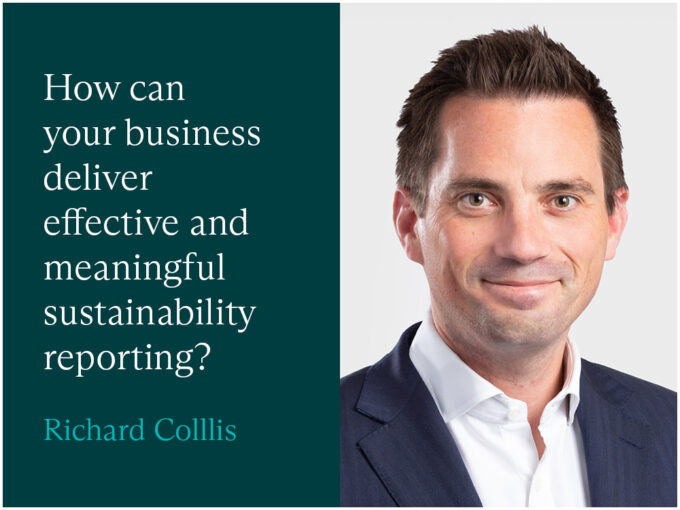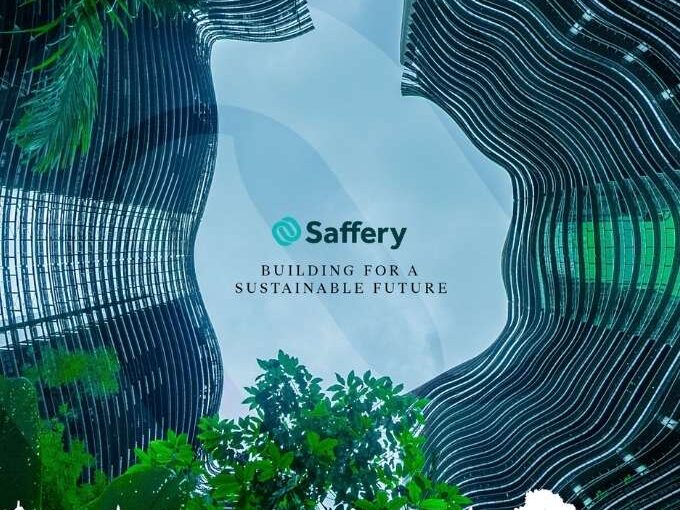UK Sustainability Reporting Standards S1 and S2 – exposure draft

The UK government has set a clear ambition to position the UK as the sustainable finance capital of the world, mobilising private capital to support the transition to a net zero and nature positive economy.
As part of a series of initiatives to achieve this ambition, the UK Sustainability Reporting Standards (UK SRS) exposure draft was launched for consultation. The UK SRS will provide the foundation for future sustainability reporting regulations.
What are the UK Sustainability Reporting Standards?
UK SRS are a set of standards to guide UK companies to report on material sustainability and climate-related risks and opportunities. The exposure draft of UK SRS outlines two core standards, S1 (general requirements for disclosure of sustainability-related financial information) and S2 (climate related disclosures).
The draft UK SRS are based on the standards published by the International Sustainability Standards Board (ISSB), IFRS S1 and S2, aiming to provide consistent, comparable and decision-useful information for the primary users of general purpose financial reports, eg investors.
The draft UK SRS S1, which reflects IFRS S1, sets out the general requirements for disclosing material sustainability-related risks and opportunities. These are risks and opportunities that could reasonably be expected to affect a business’s cash flow, access to finance, or cost of capital over the short, medium, or long-term. The standard applies across all sustainability topics material to the reporting entity and is not limited to climate-related issues.
Similarly, the draft UK SRS S2 closely mirrors the core content and structure of IFRS S2, focusing on climate-related financial disclosures. The disclosure expectations address material climate-related risks and opportunities over short, medium and long term. These are supported by forward-looking analyses, such as climate scenario analysis, to provide investors with insights to assess business resilience in the transition to a low-carbon economy.
The UK SRS content, aligned with ISSB standards, is structured around the four pillars recommended by the Task Force on Climate-related Financial Disclosures (TCFD): governance, strategy, risk management, and metrics and targets.
UK SRS consultation: what’s it about?
The consultation does not mandate the use of UK SRS, but seeks views on endorsement for voluntary adoption. The Financial Conduct Authority (FCA) and UK government will consult separately on the mandatory adoption of UK SRS for listed companies and non-listed entities respectively.
The consultation is seeking views on six UK-specific modifications based on the ISSB standards. These amendments are not aimed at reducing disclosures about greenhouse gas emissions. Instead, they’re designed to make it easier for companies to apply the Standards, while still ensuring that the information remains useful for investors’ decision-making:
Amendment 1
Removal of the transition relief in IFRS S1 that permits delayed reporting in the first year. UK SRS would require sustainability information to be published simultaneously with annual financial statements in year one, enhancing financial-sustainability connectivity.
Amendment 2
Extension of the transition relief in IFRS S1 that permits a “climate-first” approach. UK entities will be allowed to report on climate-related matters for up to two years, before fully integrating broader sustainability issues, versus one year under ISSB. The table below illustrates the impact of the relief:
Amendment 3
Removal of the requirement to use the Global Industry Classification Standard (GICS) for financed emissions in IFRS S2. UK entities would be able to use other classification schemes they already use when reporting on financed emissions.
Amendment 4
Removal of the “effective date” clauses in IFRS S1 and IFRS S2. The exposure draft omits the ISSB’s start dates. Instead, mandatory implementation timings will be determined by future UK legislative provisions.
Amendment 5
Clarification on how references to the standards published by the Sustainability Accounting Standards Board and the “Industry-based Guidance on Implementing IFRS S2” (SASB materials) should be treated. Under the exposure draft standards, it is proposed that referencing SASB materials would be permissive, not compulsory.
Amendment 6
Treatment of transition reliefs. Under UK SRS the reliefs would be applied from the point of voluntary use of the standards or from the point at which mandatory requirements start to take effect, offering flexibility in how entities phase in their reporting.
In addition to the six amendments, the consultation also explores the implementation of UK SRS, including cost-benefits implications, potential phased implementation approach, the integration with other UK reporting frameworks and impact on small and medium sized enterprises (SMEs).
What does the exposure draft mean for businesses in the UK?
There is a growing expectation for companies to embed sustainability and climate considerations into their core business strategies. By actively managing sustainability-related risks and opportunities, they can help ensure the long-term resilience of their business. As part of a comprehensive risk management approach, organisations will be expected to identify, assess, and address sustainability and climate-related risks and opportunities. To support this, companies should establish robust processes, procedures, and internal controls that ensure the accuracy and reliability of sustainability data, potentially subject to independent third-party assurance.
Organisations already reporting under existing frameworks, such as the Streamlined Energy and Carbon Reporting (SECR), Task Force on Climate-Related Financial Disclosures (TCFD), or Climate Related Financial Disclosures (CRFD), are well positioned as the reporting landscape evolves. These organisations are likely to find the transition smoother, given their familiarity with the language, structure and principles of sustainability reporting. However, these organisations should still prepare for expanded scope, greater depth and more integrated data requirements, as current reporting frameworks are expected to align and advance toward the UK SRS.
The draft UK SRS will initially be available for voluntary adoption. While there is an expectation that these standards could eventually apply to listed and large companies, this will depend on the outcomes of ongoing consultations. The FCA is expected to consult separately on whether to mandate the use of UK SRS within its listing rules for listed companies. At the same time, the UK government is considering whether to introduce mandatory reporting for large companies through legislation under the Companies Act 2006.
Although small and medium-sized enterprises (SMEs) are not the primary focus of these proposals, they are likely to be indirectly affected – particularly those operating within the supply chains of large companies or seeking investment. To support SMEs and ease potential burdens, the government is exploring the development of tailored tools, guidance, and training resources.
However, all SMEs should be mindful that sustainability reporting will likely become a business-as-usual reporting requirement over the longer term, and that the key principles in these new standards, if endorsed, will undoubtedly form the underlying basis of any such future SME requirements.
Other considerations
Alongside the exposure draft of UK SRS, two additional consultations are underway. The three consultations collectively mark the first phase in modernising the UK’s sustainable finance framework:
- Sustainability assurance: the UK government is seeking views on the proposal to introduce a voluntary registration regime operated by the Audit, Reporting and Governance Authority (ARGA) once established. This regime aims to provide greater oversight of third-party assurance services for sustainability related financial disclosures.
- Transition planning: the Department for Energy Security and Net Zero is seeking views on how transition plan requirements could be taken forward and its role alongside UK SRS.
What’s next?
The consultation on UK SRS will close on 17 September 2025. Following the analysis of responses to the consultation, the UK government will make a final decision on whether to endorse the drafts of UK SRS S1 and UK SRS S2 for use in the UK and make final versions available for any entity to use on a voluntary basis. If endorsed, the final UK SRS S1 and UK SRS S2 are expected to be published in Autumn 2025.
How we can help
Businesses using UK SRS for reporting will be expected to provide complete, accurate and verifiable material sustainability-related information. If you want to prepare early for potential future reporting obligations, or need expert guidance to navigate the evolving sustainability landscape, we’re here to help – please get in touch.
Contact us
Partner, London
Key experience










